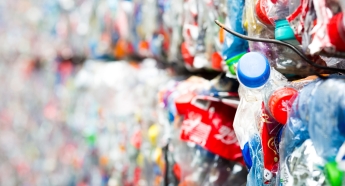Fost Plus once again collected a record volume of packaging during 2024. Each Belgian sorted 25.7 kg of PMD, 24.7 kg of paper and cardboard, and 28.7 kg of glass – totalling just under 80 kg per citizen. These figures come from our new Activity Report, published on 5 June. In addition to data on the collection and recycling of household packaging in Belgium, the report also provides extensive information on the innovation projects we undertook in 2024.
The recycling rate increased for almost all materials in 2024. For plastic packaging, Fost Plus recorded a rise in the recycling rate from 69% to 71%, representing approximately 4,400 additional tonnes of plastic packaging recycled. At the same time, we observed an increase in sorting errors in waste coming from both households and businesses. However, thanks to awareness campaigns and close cooperation with waste operators and intermunicipal companies, Fost Plus is seeing a cautious decline in incorrectly sorted materials in PMD bags during the first months of 2025.

Sustainable packaging design: a strategic priority
By focusing on innovation throughout the entire chain, Fost Plus continued to play a crucial role in the transition to a circular economy and a more sustainable society in 2024. In doing so, we help our members optimise their packaging design and accelerate the shift towards reusable packaging. By the end of last year, 99% of all single-use packaging on the market was recyclable. We are working closely with our members to find solutions for the remaining types of packaging. The biggest challenges lie in a few very specific formats used for products such as coffee, wet pet food, meat, fish and dairy.
Focus on domestic recycling capacity
Fost Plus also remains committed to expanding local recycling capacity. For example, we laid the foundation stone for the new MOPET recycling plant in Neufchâteau, which will process PET bottles and PET trays. And at Indaver’s Plastics2Chemicals plant, the first tonnes of polystyrene were prepared for processing. As a result, 49% of plastic recycling now takes place in Belgian recycling centres, up from just 9% in 2020. The remainder is handled by partners in neighbouring countries, and therefore remains within the EU.
Belgium has been a European leader in collection and recycling for many years, but we must recognise that recycling alone is not enough. The European Packaging and Packaging Waste Regulation sets strict targets not only for recycling, but also for the use of recycled materials and for packaging reduction by prevention. To take these crucial next steps towards a circular economy, we are investing heavily in research and development together with our members and partners.
